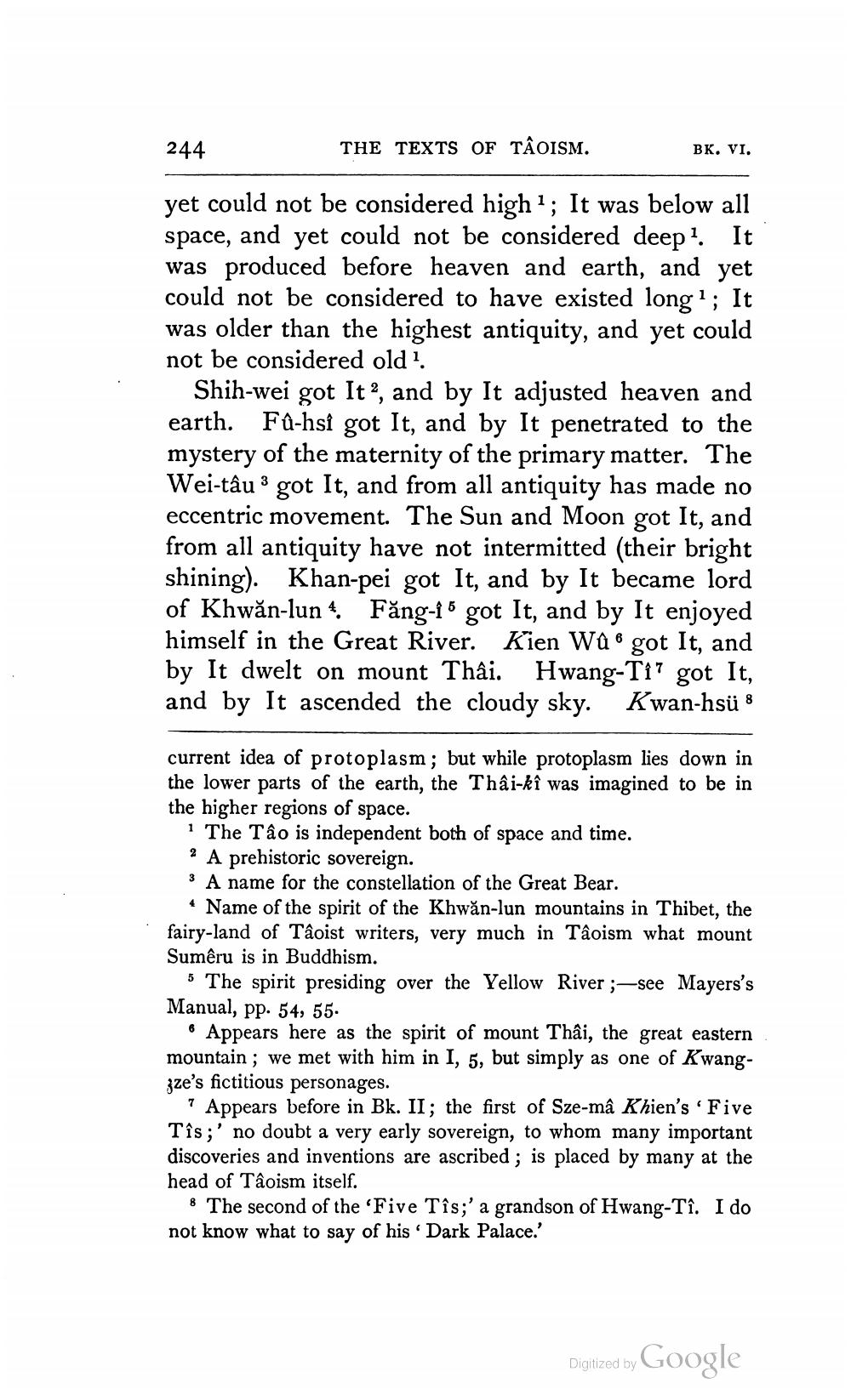________________
244
THE TEXTS OF TÂOISM.
BK. VI.
yet could not be considered high 1; It was below all space, and yet could not be considered deep? It was produced before heaven and earth, and yet could not be considered to have existed long ?; It was older than the highest antiquity, and yet could not be considered old ?.
Shih-wei got It?, and by It adjusted heaven and earth. Fû-hsi got It, and by It penetrated to the mystery of the maternity of the primary matter. The Wei-tâu 3 got It, and from all antiquity has made no eccentric movement. The Sun and Moon got It, and from all antiquity have not intermitted (their bright shining). Khan-pei got It, and by It became lord of Khwăn-lun 4. Făng-i 5 got It, and by It enjoyed himself in the Great River. Kien Wû got It, and by It dwelt on mount Thâi. Hwang-Tí? got It, and by It ascended the cloudy sky. Kwan-hsü 8
current idea of protoplasm; but while protoplasm lies down in the lower parts of the earth, the Thâi-kî was imagined to be in the higher regions of space
1 The Tâo is independent both of space and time. ? A prehistoric sovereign. 3 A name for the constellation of the Great Bear.
4 Name of the spirit of the Khwăn-lun mountains in Thibet, the fairy-land of Taoist writers, very much in Taoism what mount Sumêru is in Buddhism.
5 The spirit presiding over the Yellow River ;—see Mayers's Manual, pp. 54, 55.
* Appears here as the spirit of mount Thâi, the great eastern mountain ; we met with him in I, 5, but simply as one of Kwangzze's fictitious personages.
7 Appears before in Bk. II; the first of Sze-mâ Khien's Five Tîs;' no doubt a very early sovereign, to whom many important discoveries and inventions are ascribed ; is placed by many at the head of Taoism itself.
8. The second of the 'Five Tîs;' a grandson of Hwang-Tî. I do not know what to say of his 'Dark Palace.'
Digitized by Google




